tags:
wetsuit |terra cycle |sustainable surf |sustainability |surf |recycle |new england surf |new england |neoprene |environment |earth week |crooked surf |cold water surfing
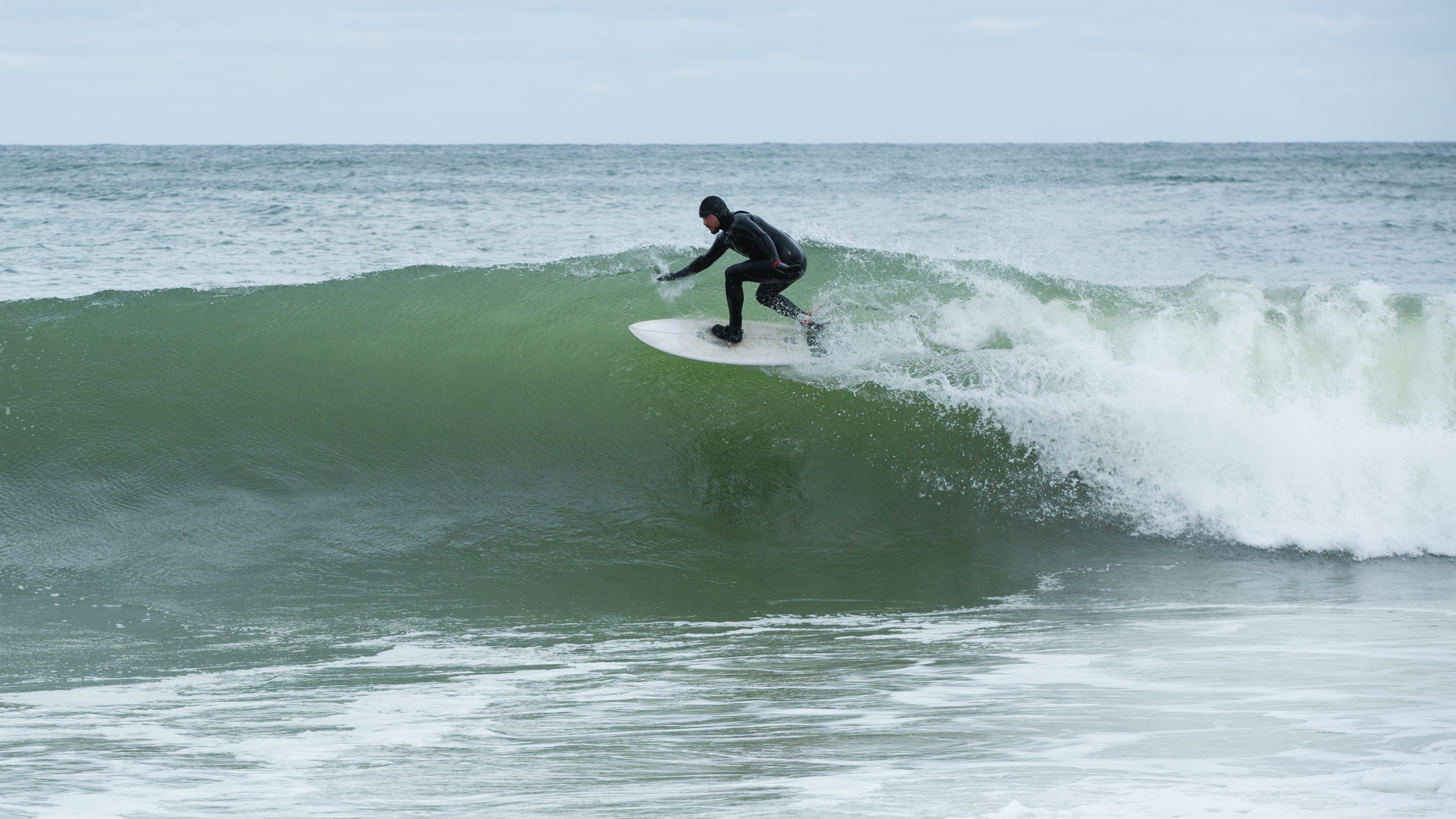
Let’s face it: Most of the things you own are going to outlive you. It’s not exactly news that most material items don’t have a lengthy life span: Clothes tear beyond repair, your toothbrush loses bristles, your shoes fall apart… but just because you’re done using it doesn’t mean the world is. For example, every single plastic toothbrush you’ve ever used in your life is most likely still alive somewhere. Scientists estimate that that thing is going to take more than 500 years to either break down in a landfill or some marine environment. Honestly, kind of embarrassing for us! In the race against time, our material legacy won’t be architecture or art; the next epoch is going to regard our footprint as one thing and one thing only: Garbage. Whether we like it or not, our trash dictates our historical narrative. In solving this issue during the age of hyperconsumerism, we need to figure out how to slow down our rate of waste in the face of unavoidable wear and tear, and find a balance between high quality goods and affordable prices. One New England surf brand is up to the challenge of answering.
Crooked Surf was born from three avid surfers who grew up off the coast of New England, Mark Cruickshank, Dustin Devlin and Erik Hibbard were running into the issue of trying to find high quality suits that were relatively affordable and also able to endure the unforgiving temperatures and swells off the coast of New England. Every season, they would buy expensive wetsuits that would not provide the necessary warmth or stay intact during brutal winters. After each season, they were left with making hasty repairs or shelling out more money for another suit that would not fit their needs.
Another issue? Traditional Neoprene wetsuits which are known for being made from non-renewable materials, and the production of the materials needed also generates a large amount of pollution that threatens the environment, wildlife and people. An estimated 8,380 tons of wetsuits end up in landfills each year, something these ocean lovers could simply not get behind.
That’s how the the three teamed up to create Crooked Surf: a New England born company three years young, aiming to create cold water wetsuits that actually work while also reducing the issue of wetsuit waste. We caught up with Dustin and Erik to tell us a little more about how Crooked started and where it’s going. New England lovers and cold water surfers with a soft spot for sustainability, read on…
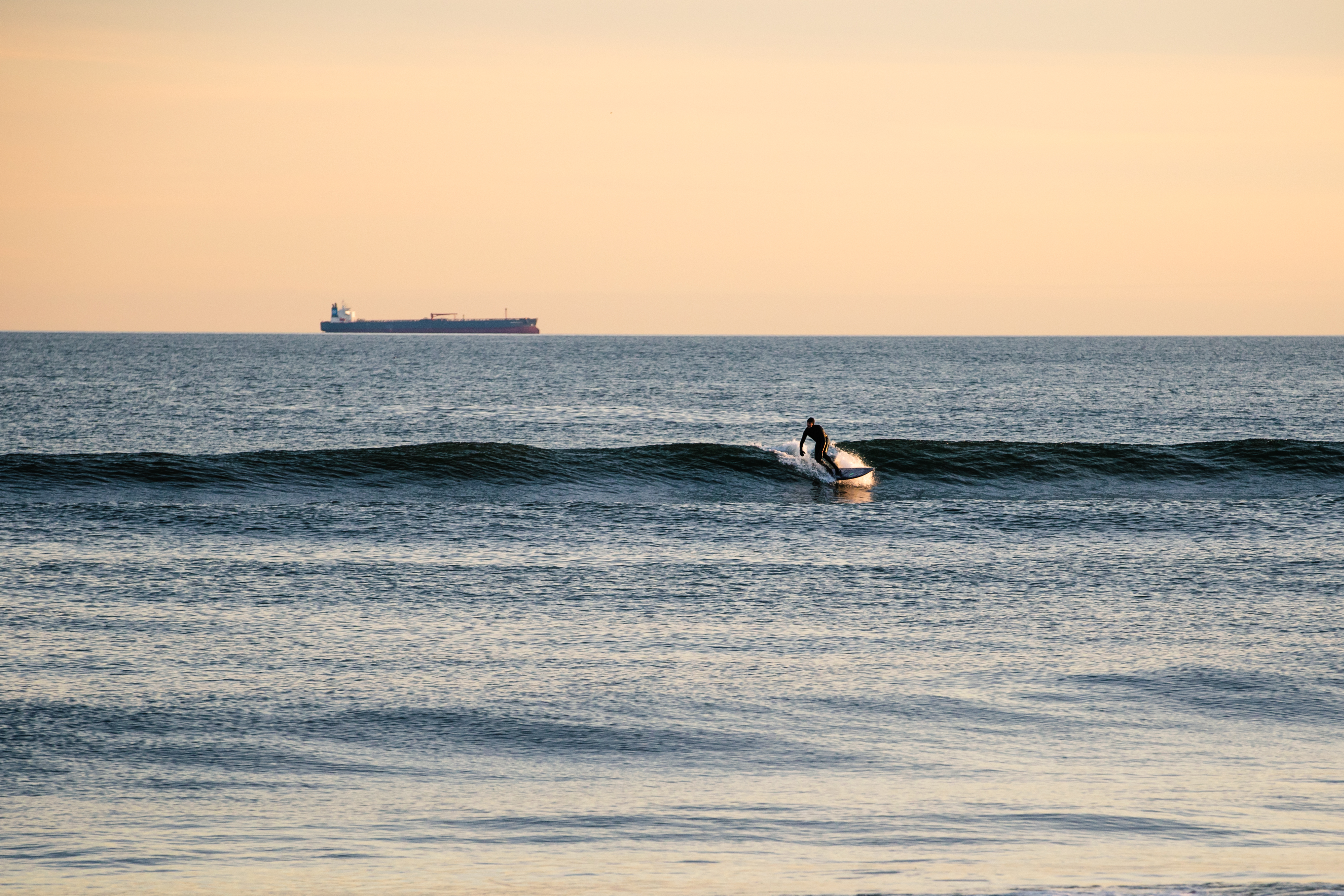
Taylor: How did you and Erik meet?
Dustin: We both grew up on the Cape but didn’t meet until later on in my mid twenties. I was working with a lot of ad agencies in Boston and doing video editing on the side. I hired one of Erik’s friends to be my assistant at an ad agency, and that’s how Erik and I met.
When I started a production company called Vagrants, we brought Erik on as the ultimate Swiss Army knife. We were producing a ski film at the time and I needed somebody that could help us lug gear, fly a drone and just be psyched about everything. He was also probably the most experienced outdoorsmen of the bunch and when he came on, he put the production on his shoulders. We hired him at Vagrants soon after. Six months into him working for us, we started Crooked.
Erik: Before I started working for Vagrants, I was at a small outdoor apparel company, so rolling into something like Crooked was refreshing. It was nice to get back into those brand roots.
Taylor: What drew you to starting a wetsuit company like Crooked? Was it the passion for surfing in particular, or did you see something that you wanted to fix, or was it a combination of the two?
Dustin: We’re missing Mark Cruickshank here, but that’s where the name Crooked comes from. He’s the founder and one of my best friends. He’s also a tinker. If he sees a problem, he obsesses over it. When I met him, he was making wooden surfboards and was ultimately trying to fix the foam problem that was coming to the surface in the mid to late 2000s. There was this movement away from having old school foam and toward EPS foam, which is recycled.
Because of the foam issue, surf companies started coming out with bamboo plated boards, and a lot of people were playing with this wooden board thing because it's more environmentally friendly. Cruickshank’s whole thing then was to make wooden boards that could be shaped by Shapers. He basically just made wooden blanks, and was pretty successful. He got Tim Stamps from Stamps Surfboards in on it and Rich Harbor from Harbor Surfboards involved, some pretty high profile guys. Ultimately, it didn't have the business legs to survive. Turns out, getting super lightweight paulownia wood, which was what he was using, was difficult to get and the price point was too high.
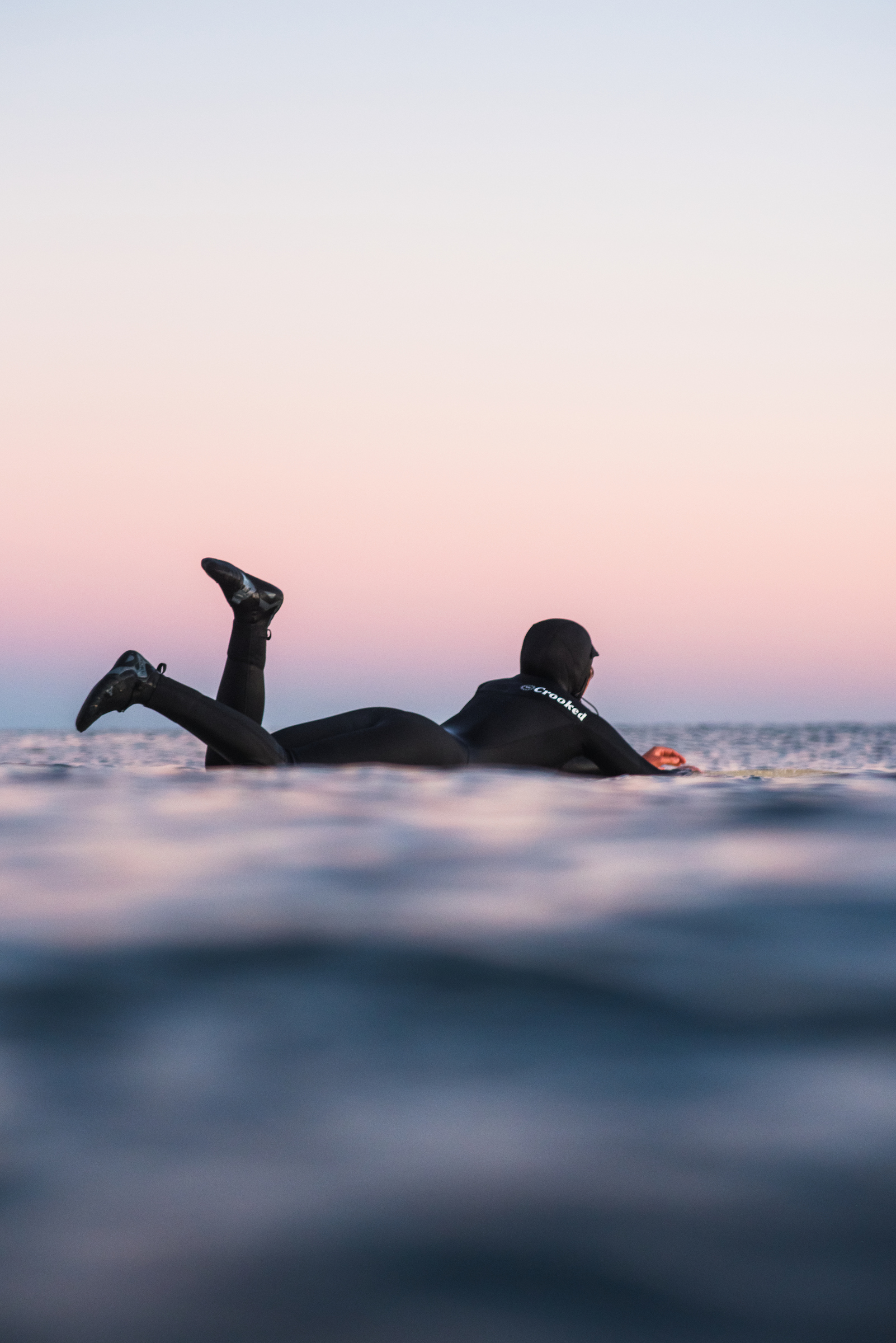
Eventually, a recycled EPS foam came on full steam and became the industry standard. Down the line, I did a video for Mark Cruickshank - which was how we met. Through surfing, especially on the East Coast, you're always in cold water which means you're always battling your equipment. Your booties are blowing a hole or the seam on your shoulder breaks and you're flushing water through it. We all just never found a winter wetsuit that we liked, that was a normal opinion in our surf community. Anybody we talked to would be complaining about whatever $500 wetsuit they just bought. Cruickshank became obsessed with this problem and started figuring out where neoprene comes from.
He was really interested in Japanese Yamamoto Neoprene, which a couple smaller wetsuit companies started using, and then larger wetsuit conglomerates started getting beta suits. Cruickshank and I started wearing them and we were just like, “These things are freaking awesome.” We were psyched at the idea that we didn't have to spend $500 on a wetsuit if we went factory-direct.
I'd always fantasized about having a company that represents a brand that represented the spirit of New England and cold water surfing because it's such a palatable mood, vibe, and attitude that gets portrayed in different ways, but there was no brand that I felt as a New England surfer that I could latch onto. I think we were commandeering other brands and trying to make them ours. The idea of having an original New England brand that made wetsuits made a ton of sense, especially once we got hands on the product.
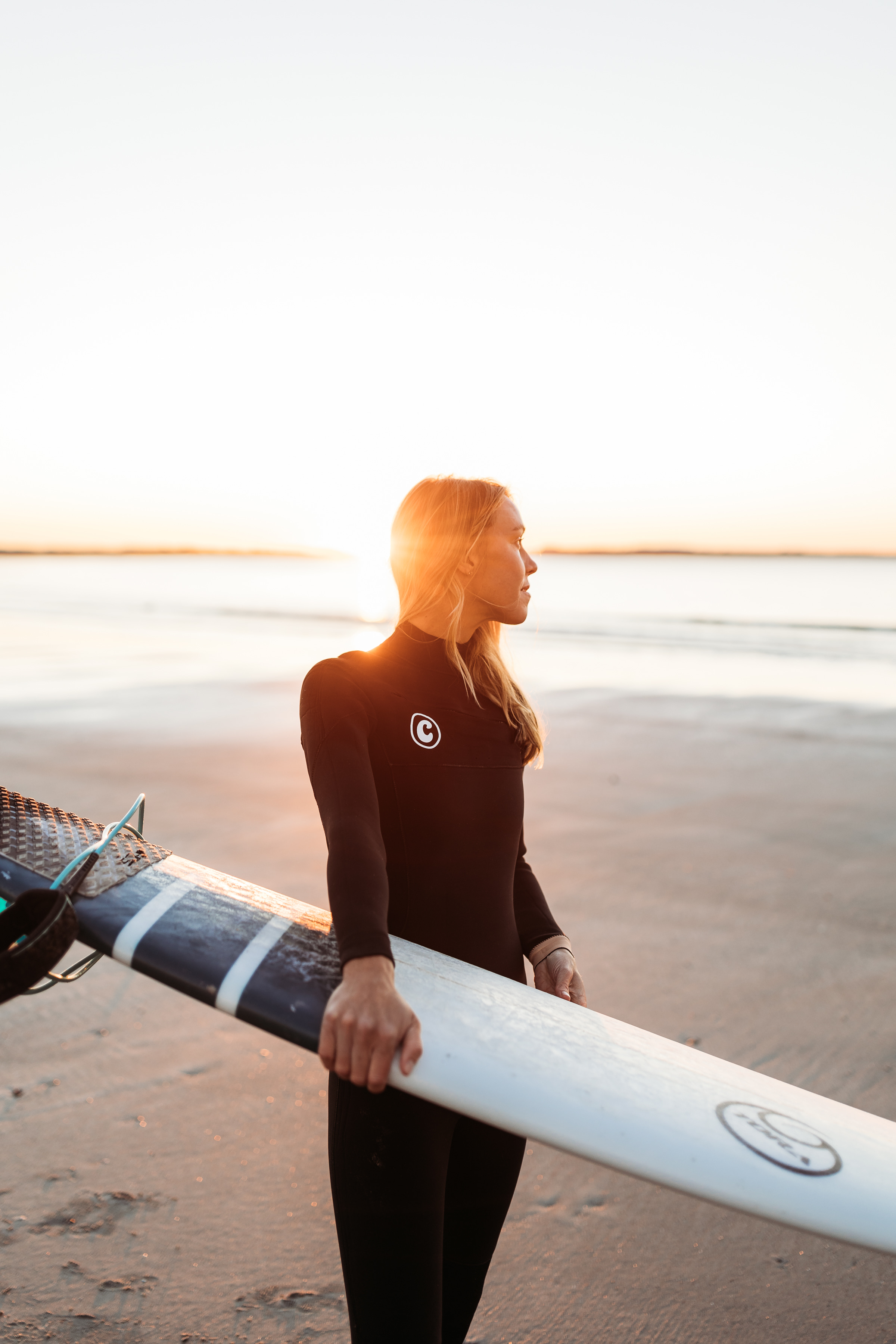
Taylor: There’s so few brands in this particular space that strictly serve specifically a New England purpose and culture.
Dustin: There's some people that have flirted with it, but there has to be an edge and authenticity to sell to people in New England, otherwise they’re not gonna buy in. It's part of our culture here. New England is equal parts salt and joy. Having a brand that represents that energy while also representing good vibes is important to us. We have the same aloha spirit that you see across surfing, but we also have that little bit of salt and edge from challenging the environment and the conditions. Coming up with a brand and a wetsuit was just a perfect product to do that with. Out here, it’s literally the barrier between you and the elements.
Taylor: With the wetsuit exchange, is that something that came later after you guys got started or when did the idea come about? Also, when did Crooked really start?
Dustin: I think we're just crossing into year three with Crooked, so we started it in 2020.
Taylor: Great time to start a business!
Dustin: It was actually very much a COVID invention because the only thing we were doing was surfing. The idea of recycling was actually at the beginning of Crooked because before we knew too much about supply chain and talking about making it financially work, because wetsuits are tough in general. If you’re surfing regularly, you’re going to buy a new suit every other season. So we thought, how do we make the price work, and how do we start a venture that isn't actively putting more neoprene into the environment? If we're gonna create a wetsuit company, how do we create it so that we're not making that problem worse? It wasn't until we found TerraCycle, a waste management company, that Crooked and our goals for it could become a reality.
After some trial and error with other groups, the Neoprene recycling process from TerraCycle made the most sense. At the start of Crooked, we had the idea of having a membership program where, if you were to buy a Crooked suit, as soon as you've used it to its life, you could trade it in to get a new one. We're at the point now where people have old Crooked suits, and we are crossing that threshold of actually recycling them.
I think TerraCycle deserves a lot of the credit here in terms of recycling. Stitchbox, which is another thing we offer, helps with the longevity of the suit. They’re a California based company and they do all our repairs for us. It’s another way to keep neoprene out of landfills and reduce waste within the sport.
Taylor: Have you guys seen success with it so far?
Dustin: Yeah, it's been absolutely crazy. When the exchange program started, we had a hundred suits in less than a week. We saw close to a thousand percent in growth last year and are still growing. I’ve seen more and more people out in the line-up with Crooked wetsuit on, most people we don’t know, which is awesome to see.
Erik: We're even seeing people come in from the West Coast, so it's definitely growing that way too.
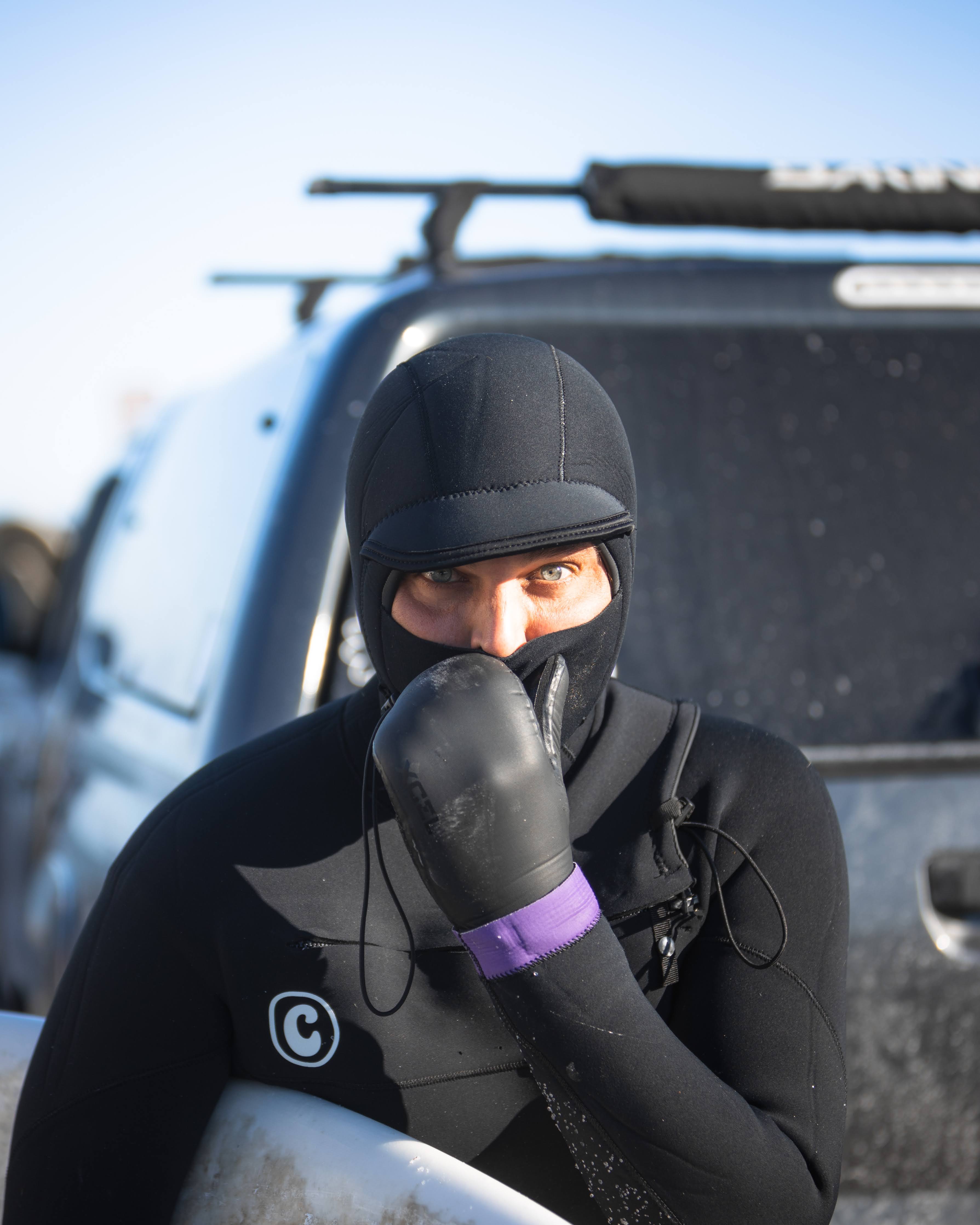
Taylor: What's next for Crooked?
Dustin: We want to expand reach within the New England region and beyond. For us, it's about representing cold water surfing authentically - on the whole being that New England is the testing ground for cold water surfing. It's about building that community, and having the recycling program is a great way to do that. It creates brand loyalty and folks start to wear our stuff as a badge of honor. Accessibility to surfing is also a huge thing that represents New England surfing. Until an efficient cold water wetsuit, surfing in New England wasn’t really a thing, so accessibility in general and bringing in more communities is something we want to prioritize.
We're working with a few organizations that are focused on bringing more women into the sport; Babes On Waves is one worth highlighting in Oregon that we're supplying wetsuits too to create a better environment for women to be equipped with the tools to make surfing in cold water enjoyable. We’re also volunteering ourselves with a program called Elevate Youth here in New England that takes kids from inner city underserved communities and gets them out surfing.
Taylor: Where do you end up taking those groups?
Dustin: Mostly at the wall in New Hampshire. This New Hampshire based surf company Cinnamon Rainbows is one of our partners and they bring the boards, we bring the wetsuits and we make it happen.
Taylor: That's so cool.
Dustin: From a product standpoint, we are working to expand our women’s specific suit collection. We'll be rolling out a women's 5/4 next season and are now offering a full line of suits from 3/2’s all the way up to 5/4’s. We’re also starting to get into booties and gloves and hoping to have a full wetsuit offering and other accessories too. We want to be a reliable brand that isn’t just selling a logo on a t-shirt, but is actually making practical products that allow cold water surfers to do what they do best.
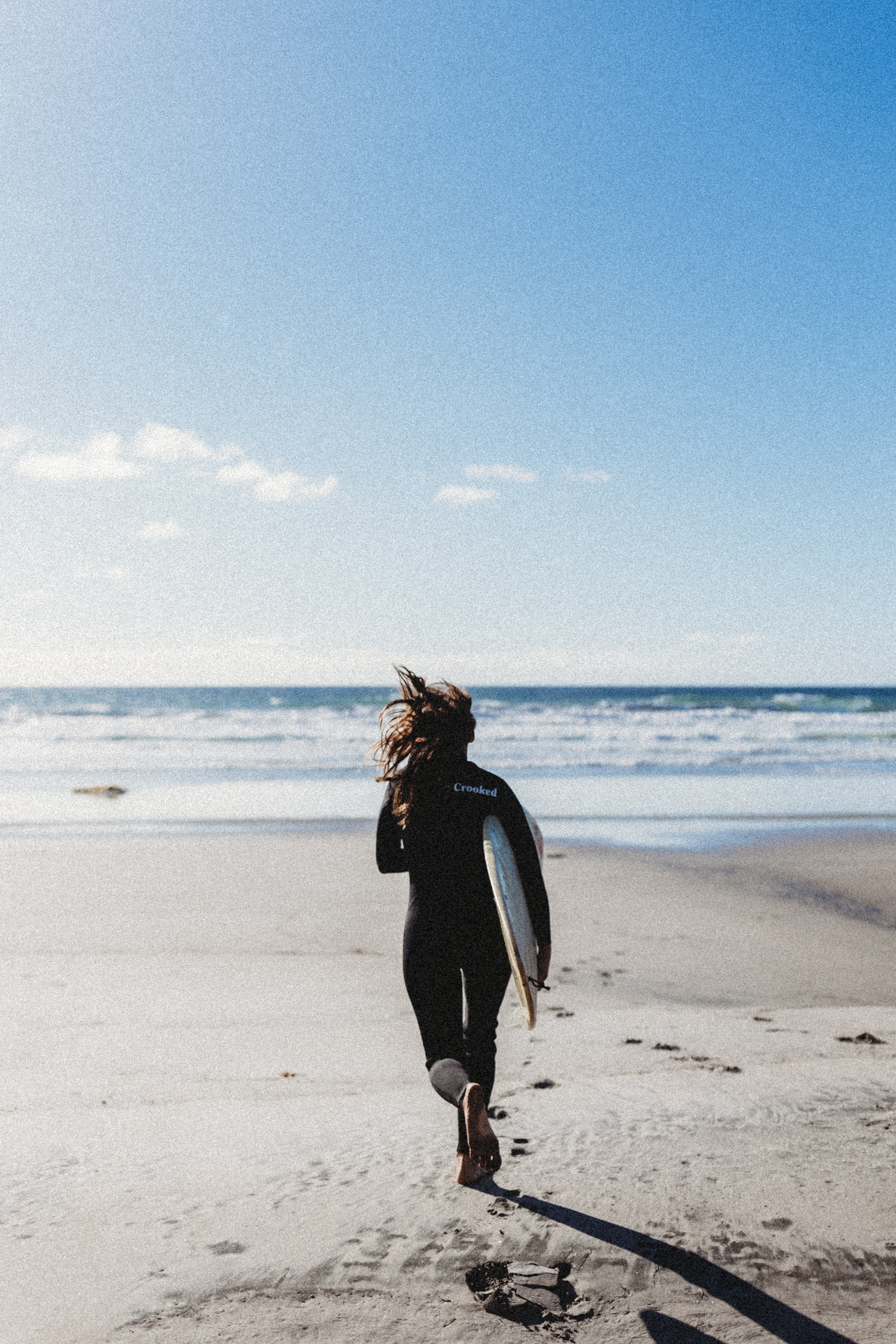
Taylor: I'm super stoked that you guys reached out and wanted to chat. I love Crooked and the whole brand and the mission. I think it's really original and super interesting. I think it especially pulls on my heartstrings being from the same area as you both.
Dustin: That's the chord we're hoping to strike. I think it comes back to those roots. A lot of people have roots here in New England and you either get it or you don't, and I think there's a lot of people who get it. We're trying to find those people and bring them into our community.
Learn more about Crooked and the wetsuit exchange here.


